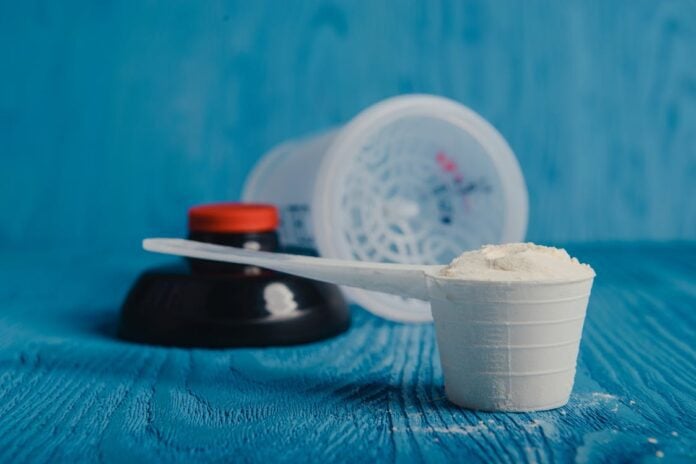There are many supplements on the marketplace that can help increase muscle. Creatine, one of the most common supplements, is one of its most used. This supplement is popular but is also the most misunderstood. Creatine, which is scientifically proven in helping build muscles, has earned a poor reputation despite its widespread use. This poor reputation is mostly due people misunderstanding what the supplement actually does. Many thoughts and fears have been expressed about creatine. Are these fears justifiable? Continue reading for more information.
What Creatine Is
Creatine is one of the most effective supplements in building muscle. It is popular among both new and old athletes. Athletes can’t use creatine as a stimulant, right? That belief is widely held by many in the world. But it isn’t true. This, together with many other misunderstandings, will be explained in this article. We are ready for some myth-busting. We will share the truth about this effective supplement and explain how it can affect performance as well as adapt to the body.
Myths vs. Facts
- #1 Myth: Creatine Is an Anabolic Steroid
Let’s address this misconception first. Although this is not the most common belief about creatine it is still a valid question. Creatine does not have an anabolic effect. It is not comparable to steroids in terms of effect and work. Creatine does not have the same structure as steroids. In reality, Creatine’s structure and functions are more like a vitamin or mineral that are more well-received than a steroid. Consider that professional athletes may use creatine for their increased muscle strength. These athletes cannot use steroids and the World Anti-Doping Agency (WADA) does not include creatine in its banned substances list. - #2 Myth: Creatine Is Bad for Your Kidneys
One theory that creatine can be harmful to the kidneys has gained momentum in recent years. Many believe that the kidneys are damaged by the byproduct of blood creatine (the phosphocreatine) which increases in the body. This can lead to the formation kidney stones. The good news about this belief is that it isn’t supported by evidence and doesn’t have much support. In fact, your kidneys almost exclusively remove creatine metabolism compounds from your body. By taking creatine, doctors can help you and your family understand how well the kidneys are functioning. It was found that creatine supplements can have side effects on the kidney function. This has been confirmed by extensive research. Studying various dosages, the study found that creatine did little to affect serum creatinine levels. This indicates kidney function and possible damage. Creatine supplements have been extensively tested, time after time. When taken in the recommended amounts, creatine has always been safe for the kidneys. - #3 Myth: Creatine Increases Body Fat
If you want to build muscle and take a supplement to aid in that quest, you should stay clear of things that could increase your body weight. Creatine can be dangerous for weight gain, so people tend to avoid it. This rumor has been circulated online and across different fitness groups for many years. However, it simply doesn’t hold true. While users may feel a slight weight increase when first trying creative, this is often due to intracellular fluid retention and a decrease in urine volume. Can creatine cause water loss? Yes, but only in a small amount. Is there a way to increase body weight with creatine? No. - #4 Myth: Creatine Is a Way to Reduce Muscle Mass
Many believe that your muscle creatine levels will drop once you stop taking this supplement. Creatine may make you look more ‘soft’. This is the reason bodybuilders will stop using it after several weeks prior to entering competitions. Creatine allows water to flow into the muscle cells. The muscles are able to hold more water. The volume, however, does not appear to be solid. It instead has a more doughy look and feel. You won’t lose muscle mass even if creatine is stopped. Instead, you will continue to have muscle mass. If you continue to exercise and eat a balanced and healthy diet for muscle building, you will not lose any muscles when you stop taking creatine. - #5 Myth: Creatine Can Cause Hair Fall
Ask any gym-goer, and you’ll find many who believe that creatine causes hair loss. This fairly common theory can mostly be attributed only to one study. The study examined how creatine supplements affected dihydrotestosterone (DHT). As you can see this belief cannot be proven true by one study. Most people who experience loss of hair are genetically predisposed. This occurs when your hair follicles have a higher level of DHT sensitivity. This can lead in turn to androgenetic, or male and/or female, alopecia. You might be thinking this is an alarming study. It is important for you to know that none of the participants experienced any kind of hair loss. Overall, not enough evidence exists to prove that creatine can cause hair loss or contribute to it. However, it is recommended that people who are predisposed towards pattern baldness consult a healthcare professional prior to taking any type of supplement.
Summary
Numerous myths surrounding the supplement creatine alarm and scare people away. However, creatine was thoroughly researched and tested in many studies. And it’s certainly not a drug. Yes, there are side effects that may need to be investigated further, but creatine should be taken as a safe supplement and used to build muscle.


